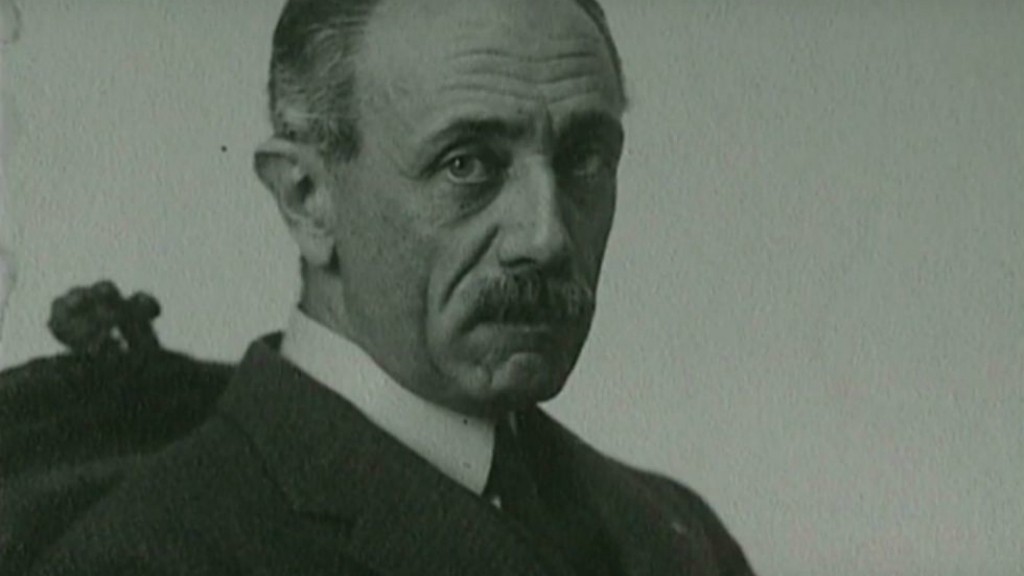"We sided with the villains..." Exactly 80 years to the day, on April 3, 1941, Count Pál Teleki, Prime Minister of Hungary, killed himself with his pistol at dawn.
The news of Pál Teleki's death spread in the capital that day, early in the morning. According to the newspapers of the time, at 9:15 a.m., the Hungarian Telegraph Office issued the following terse statement: "Count Pál Széki Teleki, Hungarian Royal Privy Councilor, Hungarian Royal Prime Minister, died tragically suddenly tonight." The news was announced minutes later by Magyar Rádió, and from then on it broadcast mourning music.
The newspapers, of course, tried to find out everything about the circumstances of the death, and also mapped the prime minister's last day. According to them, Pál Teleki took his usual daily walk on Wednesday morning, later discussed with his fellow ministers, and then went to the House of Representatives. From there, he drove to the János sanatorium, where he visited the seriously ill wife every day. In the afternoon, he was busy with important negotiations, then he drove to the Basilica, where he participated in a spiritual exercise. He stayed in the church for a very long time and prayed deeply. At half past nine in the evening, he again held a political meeting with Foreign Minister László Bárdossy, they talked for about half an hour. He left the Ministry of Foreign Affairs one more time to see his wife's sick bed, and then arrived at the Sándor Palace.
It was already late in the evening when he returned to rest, and he instructed his servant to wake him up in the morning at quarter past three. As he said, he wants to participate in the scout officers' retreat on Thursday morning. That is why the butler made the Prime Minister's scout uniform. Then in the morning the butler entered the room,
"he opened the blinds, and in the light, in the golden light of the early morning sun, he found the prime minister dead in his bed with a waxy yellow face."
The suicide shocked the public, but even those who would have mentioned murder online were soon cooled down by the opinions of medical experts, which were described in detail in the next day's newspapers. University professor Dr. Lajos Bakay and dr. Police chief doctor Károly Levitzky examined the deceased prime minister, and the following statement was issued. "Examining the body, it became apparent that a large type Browing revolver was lying on the right side, on the neck, in contact with the index finger of the right hand. The pillow of the bed is full of blood clot that has oozed down both sides. On the right side, in the area of the temple, at the edge of the hairy scalp, we found the penetration opening, which is surrounded by roasted and matted hair. The destroyed parts of the brain were emptied through the opening. The exit opening can be seen in the area of the left temporal parietal bone, it is about two blades wide, and it is also filled with blood clots and brain parts. Corresponding to the location of the head, there is a dime-sized opening on the wall, the area around which is covered with brain wreckage sticking to the wall. The examination of the body showed that his death may have occurred in the early hours of the morning. The fact of suicide has been established beyond all doubt."
Of course, Governor Miklós Horthy was also informed of the Prime Minister's death, who rushed to the scene. Count Pál Teleki's widow was also taken to the prime minister's office in a patient transport car from the Szent János sanatorium at around a quarter to five in the afternoon. She spent about half an hour at her husband's deathbed, then returned to the sanatorium. The prime minister's body was placed in a coffin at five o'clock, he was dressed in a black, corded, Hungarian dress and his mother's silver cross was placed in his hand. At a quarter past six, the hearse with registration number BN 444 took the Prime Minister's ore coffin away.
The next day's papers, of course, investigated the cause of the suicide. For example, the 8 Órai Újság wrote the following: "The outburst of a long-standing mental depression caused this almost unprecedented tragedy in Hungarian history." The Magyarság newspaper mentioned personal problems:
"In recent days, the serious illness of the Prime Minister's wife has only increased the mental depression, which has turned serious".
There is no doubt that Pál Teleki was greatly affected by the fact that his wife - to whom he had been married for 33 years - fell seriously ill, and it is also known that the prime minister had been suffering from kidney problems for decades.
The full article HERE .












